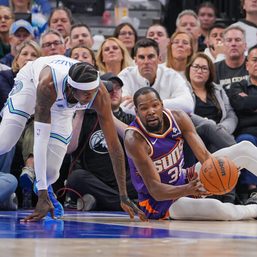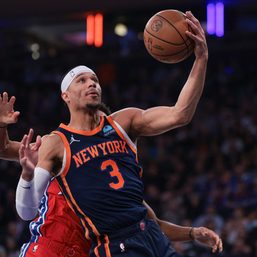SUMMARY
This is AI generated summarization, which may have errors. For context, always refer to the full article.


I recently read Dr Del Castillo’s piece “On hoarding certificates from online courses and webinars,” and can’t help feeling a certain insecurity. Since April, I have been taking an online course, having felt overwhelmingly unproductive during my quarantine days.
I enrolled in an “Intro to Shakespeare” course on edX. It was a topic I had not tackled during my undergraduate degree, and it would complement my current graduate studies in Creative Writing. It was a free course, but to get a certificate, I needed to pay the equivalent of P2,000. It was a hefty sum, but I chose to pay it so that I would finish the course throughout and have the proof to boot. But after reading Del Castillo’s essay, I pondered: was my decision ill-advised?
Perhaps the pursuit of certificates and awards are, in some form, a vanity. We strive to achieve honors in school so that we might feel accomplished, and we then pass these pressures on to our children. Admittedly, this illusion of a reward for being academically superior creates a hostile and toxic environment. I have seen individuals beg college and university professors for grades to reach the cum laude threshold, for instance.
Nonetheless, I do believe that certificates attained in online courses are different. Those were gained without the pressure of academic grades. Ratings in these courses, rather than the awarding of medals, are also used as a measure of mastery instead.
Additionally, while we do see many online posts featuring people who’ve accomplished these courses, which I often think are very in-your-face, especially if the said course is hosted by an Ivy League school, I dare do not discredit the happiness and pride people gain in finishing courses. Most of us will never set foot in Harvard, Yale, or some other internationally renowned school, so this is the closest most of us can get. Also, there is a sense of satisfaction we should feel when we see peers trying to learn by themselves. (READ: CHED launches web-based platform for free college learning materials)
I am also not blind to the capitalistic tendencies of these online courses. RA 10912 or the Continuing Professional Development (CPD) Act of 2016, for instance, has been such a hotbed of issues that some professions have sought to suspend it. One major issue is the saturation of so-called CPD granting events that only care about profits, not learning. But these should be mostly addressed by the various boards, councils, and employers that recognize these points and merits. We should not automatically assume that learning equates to using knowledge for capitalistic gain.
For now, what I can say is that during this time of quarantine, learning online, like cooking, writing, drawing, or any other skill or hobby, can help better a person and can sometimes become a coping mechanism.
In the forum section of my online course, I met a couple of Filipinos who said that they wanted to reconnect with Shakespeare’s works because they had an awful time learning them in high school. The pursuit of learning just for the thrill of it, then, is a decision that we must normalize. We should start to see the value of learning something new just as a way to better ourselves, since we have so much room to grow. – Rappler.com
Gillian Reyes is a registered librarian who works at the University of the Philippines-Diliman. He often writes stories for children, and hopes to build a library for kids someday.
Add a comment
How does this make you feel?





There are no comments yet. Add your comment to start the conversation.